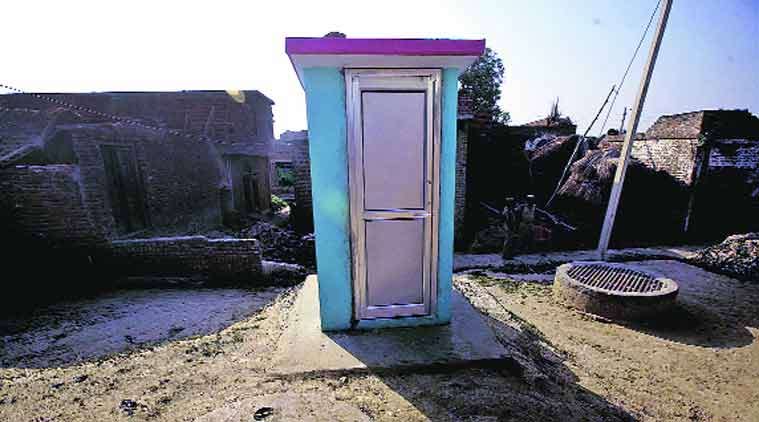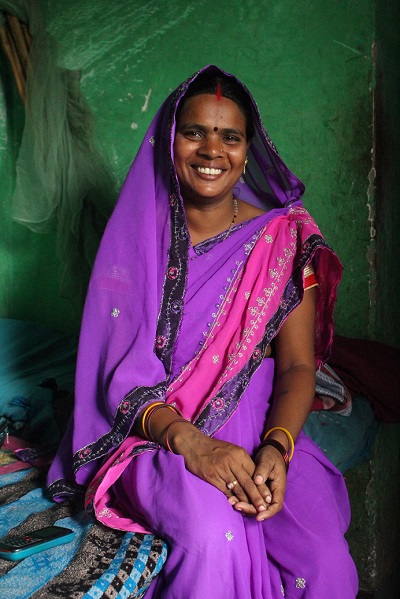Can you imagine living without a toilet?
Having a toilet in your home is something taken for granted in Australia and many middle class and wealthy homes in India. But it’s not the norm everywhere, especially in India where it becomes more complex due to a traditional belief by many that a toilet inside the house is unclean, causes disease and spreads illnesses - so millions of families don’t have one.

You may ask: “Why are you talking about toilets?” For one, I believe it’s is a human right and everyone needs dignity, also it’s World Toilet Day on Sunday 19 November. A day to inspire action to tackle the global sanitation crisis.
Today, 4.5 billion people live without a household toilet that safely disposes of their waste. The Sustainable Development Goals, launched in 2015, include a target to ensure everyone has access to a safely-managed household toilet by 2030. This makes sanitation central to eradicating extreme poverty.
Families living in rural areas in India don’t have toilets and even if they do, they lack sewerage and water lines to their home, and that means extra work for the women. In rural areas where women often walk kilometres every day to access clean water, they struggle to carry enough for the family to drink and use in cooking, let alone flush a toilet. Because they don’t have access to a toilet, women and girls in rural India walk to the fields in the dark to defecate. It’s dangerous, exposes them to scorpion, insect and snake bites and there’s the ever-present risk of being abused or attacked. And during the monsoon it’s almost impossible.
Not having easy access to toilets means girls and women in rural India don’t eat during the day and instead drink small cups of strong tea, chew beetle nut and tobacco to stave off hunger, which causes serious health issues. As a result, they are often malnourished, dehydrated, have anaemia and gastritis.
One of the major initiatives of Opportunity International Australia's partner in India, the Healing Fields Foundation, is in motivating the community, especially Opportunity’s loan recipients, to build toilets. Healing Fields trains women to be health leaders in their local communities and they talk to the women in their village about the need to build a toilet in their home.
It’s a 3-step approach – talk to the women, educate them about the need for a toilet and identify the family’s eligibility for a toilet as the government provides some families with subsidies once they can prove they have built one. The health leaders support families during toilet construction and follow up to show families how to keep it clean. They cajole and motivate all family members to use it because once a toilet is constructed it’s the women and girls who readily use it, but the men and boys still tend to defecate in the open.
The health leaders help the women apply for a loan from Opportunity to build the toilet and they negotiate with government officials about accessing a subsidy once the toilet is constructed. That’s how Seema helped build three hundred toilets in her village.

Seema Bharti, Health Leader in India
Many families in Seema’s village in India live below the poverty line and preventable diseases are a major problem. As with many communities near the River Ganges, the groundwater is contaminated with arsenic, which slowly poisons people. Gastroenteritis, typhoid and tuberculosis are also major health issues and each year, young children die from diarrhoea caused by E. coli-contaminated water since open defecation is the norm.
After becoming a health leader, Seema educated her local community about basic health and hygiene practices and discovered her community had been granted funding from the government to build toilets in every household. Despite some resistance, Seema and other women from her village lobbied authorities to build the toilets. They eventually agreed and now everyone in Seema’s village has one.
Seema plans to keep creating change for her community. She is now focused on getting a safe source of clean water for the village, so community members are no longer at risk of arsenic poisoning and typhoid. Her husband is helping her and she’s proud she’s considered a leader within the local community, creating real change for her friends and family.
So, on World Toilet Day, let’s consider how we can help families in India to build toilets. It’s a basic necessity of life. Having one reduces preventable diseases and improves the health of families and whole communities. With improved health, children can go to school and men and women can work - essential pre-requisites for breaking the crippling cycle of poverty.
If you’d like to help families in developing countries build toilets as part of their journey out of poverty, please click here.